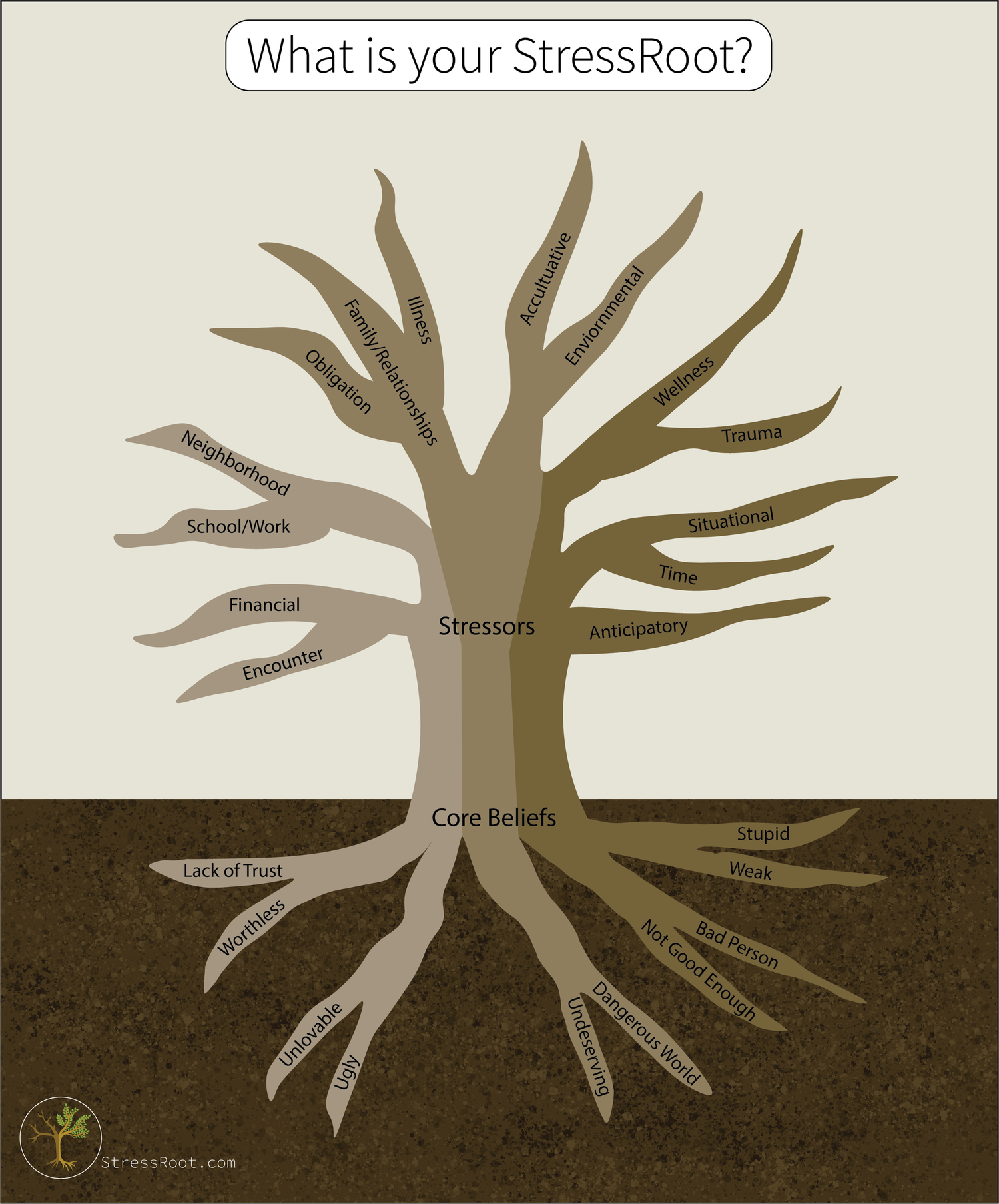Stress vs. Overwhelm
Understanding the Difference and Finding Calm Within Chaos
We often use the words stressed and overwhelmed interchangeably — but they’re not quite the same thing. Understanding the difference can change how you respond when life starts to feel “too much.”
Stress: A Response to a Defined Situation
Stress is a natural emotional and physiological response to a specific event, demand, or pressure. It occurs when we perceive that something requires more of us than we feel we can give — whether that’s a work deadline, a conflict with a loved one, or a busy schedule.
Stress is the body’s way of saying, “Pay attention — this matters.”
It’s often tied to something we can name:
“I’m stressed about this presentation.”
“I’m stressed because I’m running behind.”
“I’m stressed about money.”
Because stress is connected to something identifiable, we can often problem-solve around it. We might plan, set boundaries, delegate, or use coping tools like mindfulness or movement to regulate our response.
Stress has a label — and that gives us direction.
Stress has roots we can name, overwhelm grows when things feel tangled. 🌿 Explore the branches of Stressroot to find clarity and calm.
Overwhelm: When There’s Too Much to Name
Overwhelm, on the other hand, occurs when the situation (or series of situations) feels so big, fast, or emotionally complex that our brain hasn’t yet processed what’s actually happening. It’s as if our internal system goes offline — too many tabs are open, and everything starts to freeze.
Unlike stress, overwhelm doesn’t always have a clear cause. It’s the emotional experience of:
“I don’t even know where to start.”
“Everything feels too much right now.”
“I can’t think straight.”
Overwhelm happens when our nervous system is flooded and can’t label, categorize, or prioritize the input it’s receiving. There’s an emotional weight, but no clear target.
Once the situation is identified and labeled — “I’m overwhelmed because I’m behind on several projects and haven’t had rest” — it begins to shift back into stress, which is easier to manage.
Why This Distinction Matters
When we can name what we’re feeling, we can regulate it. Recognizing the difference helps you know what your mind and body need.
If you’re stressed: Focus on managing the specific stressor — plan, delegate, communicate, or set a boundary.
If you’re overwhelmed: Start with grounding and clarity. Slow down your nervous system before problem-solving. You might need to step away, breathe, move your body, or write down what feels tangled to help your mind find labels again.
A Few More Ways to Tell Stress and Overwhelm Apart
Sometimes the difference isn’t obvious at first, but here are some helpful ways to notice what’s really going on:
How your body reacts: Stress can feel like your body is gearing up to take action (fight, flight, or freeze), while overwhelm can make you feel stuck, shut down, or mentally “checked out.”
How your mind works: Stress tends to narrow your focus on what needs to get done. Overwhelm scatters your thoughts and makes everything feel like too much.
How long it lasts: Stress usually comes and goes as you deal with the situation. Overwhelm can linger when things feel out of control or confusing.
What you tell yourself: Stress sounds like, “I have to get this done.” Overwhelm sounds like, “I can’t do any of this.”
Moving from Overwhelm to Clarity
To move out of overwhelm, try:
Pause and Breathe: Slow down your breathing to signal safety to your body.
Name What’s Happening: Labeling (“I’m feeling overwhelmed”) activates the prefrontal cortex — the part of the brain that helps you organize and plan.
Simplify the Next Step: Focus on one small, concrete action rather than the entire picture.
Reconnect to the Present: Ground through your senses — feel your feet, notice your surroundings, or stretch your body.
Reflect Later: Once calm returns, reflect on what triggered the feeling and how to prevent overload in the future.
Stress tells us something needs attention. Overwhelm tells us we’ve lost our sense of direction. Both are signals — not failures.
When you learn to recognize the difference, you can meet each moment with awareness instead of reactivity.
You don’t have to eliminate stress or avoid overwhelm — you just need to understand what your mind and body are trying to communicate.
Do you want support to implement these strategies?
Not sure how to implement this or still feeling stress, be in touch. I am here to help you. Contact me to schedule a free consultation session.

